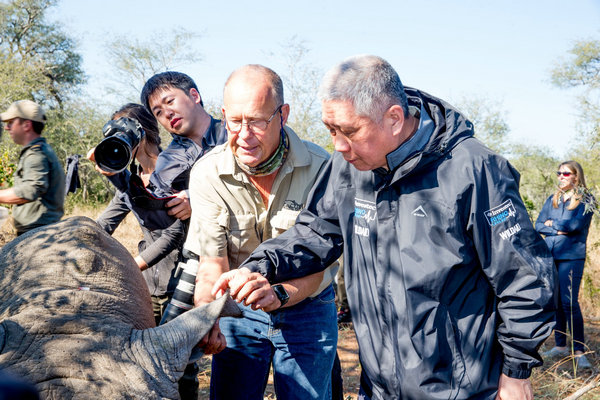Saying no to poaching
 |
|
Ma Weidu (right) visits South Africa as part of a campaign against poaching. [Photo/INVESTEC RHINO LIFELINE] |
In September, he visited South Africa to see firsthand wild rhinos in their natural habitat and those injured or orphaned by poachers, and to participate in an anti-poaching demonstration.
"I never imagined I would touch a rhino. It's an incredibly moving experience to see such a powerful animal so completely vulnerable."
South Africa has seen a spike in rhino poaching since 2008. Last year more than 1,000 were killed illegally.
"It is going to take a long time to change centuries of deeply held beliefs and entrenched Chinese culture," says Ma.
"But we are committed to this cause and the important role of telling people in China that rhino horn has no magical qualities and to stop buying it."
The campaign video has been available on TV, online, at airports and other media in China and via Xinhua's CNC channel abroad since early October.
China's top-down efforts to crack down on rhino horn poaching and smuggling are effective in curbing the illegal trade, says Steve Blake, chief representative of WildAid in Beijing. WildAid estimates only 25,000 rhinos survive and they are being killed faster than they can reproduce.
















